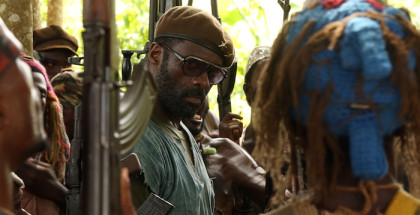Ripley review: A patient, intense thriller
Review Overview
Cast
8Cinematography
8Clinical precision
8Ivan Radford | On 07, Apr 2024
It’s almost impossible to hear the words “Tom Ripley” without immediatley picturing Matt Damon – a testament to just how brilliant Anthony Minghella’s film adaptation of Patricia Highsmith’s novel was. But in the years since, and before, we’ve been treated to a number of interpretations of Highsmith’s grifter antihero, including Dennis Hopper, John Malkovich and Alain Delon. It’s the latter that Netflix’s new TV thriller perhaps owes the most to, as its take on the first novel in the series stalks into living rooms in gorgeous black and white – and introduces us to the newest Tom Ripley, Andrew Scott.
When we first meet Tom, he is once again a con man in 1950s New York, scamming people out of small sums of money through elaborate cheque-based fraud through the post. When he’s asked by a shipping magnate to go to Italy and bring back his son, Dickie Greenleaf (Johnny Flynn), he spies an opportunity not only for an all-expenses paid escape from the authorities, but also a doorway to a new, glamorous life. Namely, Dickie’s.
Dickie, for his part, is a vain and directionless rich boy who lives with his girlfriend, Marge (Dakota Fanning), on the Amalfi Coast. He paints. She writes. Neither of them do either very well. When Tom arrives on their doorstep, he perhaps brings some variety to their existence, or some intrigue, or an opportunity to enjoy their relative superiority to his less wealthy, less polished outsider – but whatever their naive reason for letting him into their home, Tom doesn’t waste a second in turning it to his advantage.
Viewers of Minghella’s adaptation, in particular, will likely have in mind what’s on the cards: a steamy, sun-dappled affair that flirts with homoerotic tension and attraction. Steve Zaillian’s series is a rude contrast to that gorgeously glamorous outing, deliberately so. Here, Tom’s motivations are almost opaque, leaving us wondering whether he’s in love with Dickie’s way of life as much as Dickie himself, or whether he simply ends up in a spiral of escalating lies and murder through sheer survival instinct alone.
The mood is appropriately darker and more clinical: sunshine is fleeting in this corner of the world, with clouds gathering with an ominous intensity. The narrow streets of Italy become claustrophobic and labyrinthine, the endless steps up and down turning even a casual walk into an arduous, slow effort. Shot in pristinely beautiful monochrome, it’s a noir-tinged maze of cigarettes, rain and apprehension. Swooning has no place here: Ripley is a stark and chilling experience that unfolds with all the care of its protagonist’s plotting.
Johnny Flynn is excellent as the spoilt but also surprisingly vulnerable Dickie, while Dakota Fanning is enjoyably wary and suspicious of Dickie’s old friend he can’t remember. Together, they flow between distrust and endearment towards their third wheel, often seemingly unaware themselves of their shifting view of him – something that Flynn particularly sinks his teeth into, as Dickie (an heir putting on his own show of pretence in search of a new life overseas) is drawn to a man who has already made a decision about his own identity and self.
So far, so enjoyably distinct. Eliot Sumner has the toughest job of trying to get out of the shadow of the immense Philip Seymour Hoffman as Dickie’s friend, Freddie Miles (more a reflection on Hoffman than Sumner). Nonetheless, there’s a simmering sense of mutual deceit and recognition in their socialite that carries its own charge, and whether they’re drinking a coffee or slowly descending a staircase, their quiet stillness reinforces the series’ painstakingly drawn-out pace.
The result almost has a crime procedural feel, and it’s hard to shake a sense of admiration for every small, calculated step that Tom has to take to keep his cover-up intact. Holding it all together, of course, is Andrew Scott, who infects every frame with a poisonous charisma that’s spellbinding.
Scott deploys his blank-faced smile with a seemingly innocent friendliness, but his chameleonic vocals and angelic expressions are married to a sinister, slippery cunning. This Tom is not a sympathetic outsider, but a criminal. He has a pained, parasitic determination to acquire what isn’t his and is persistent in his ruthless self-defence, whether it’s hiding a body or just climbing a hill to get to his latest target’s home. Lying underneath his calm exterior is a thuggish strength, a bitter malevolence and, at key moments, a sweaty nervousness, all of which fascinatingly bubble to the surface in sour side-eyes and lingering stares.
Scott is magnetic to watch every time he’s on screen, as we want to know what he’ll do next, even as we dread it. That state of curiosity and portent is exactly where Ripey wants us, and it keeps us there, hour after hour, with a forensic patience. The tide comes in. It goes out. The storms gather. And, like Tom, we watch and we wait.
Don’t be surprised if Ripley returns for another outing.



















